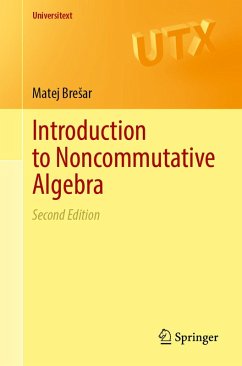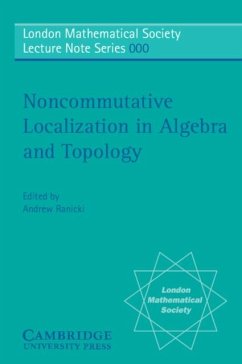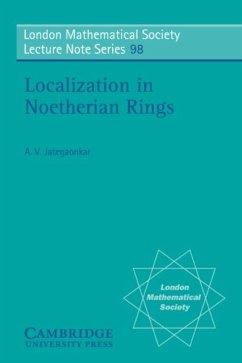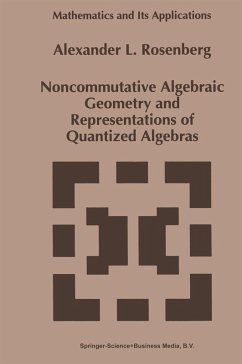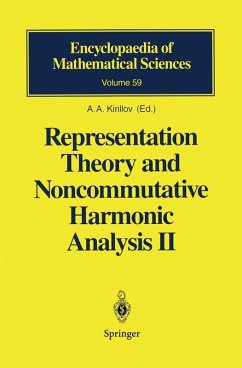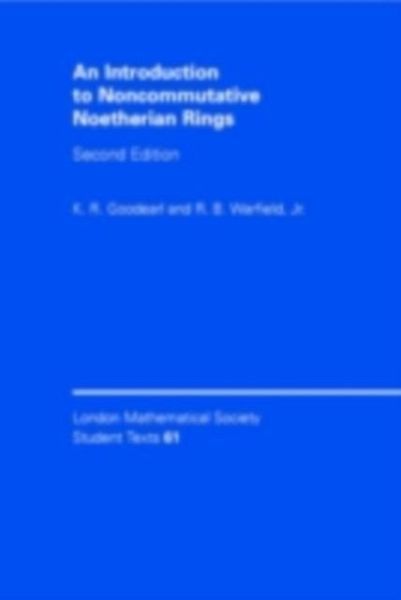
Introduction to Noncommutative Noetherian Rings (eBook, PDF)

PAYBACK Punkte
24 °P sammeln!
This 2004 introduction to noncommutative noetherian rings is intended to be accessible to anyone with a basic background in abstract algebra. It can be used as a second-year graduate text, or as a self-contained reference. Extensive explanatory discussion is given, and exercises are integrated throughout. Various important settings, such as group algebras, Lie algebras, and quantum groups, are sketched at the outset to describe typical problems and provide motivation. The text then develops and illustrates the standard ingredients of the theory: e.g., skew polynomial rings, rings of fractions,...
This 2004 introduction to noncommutative noetherian rings is intended to be accessible to anyone with a basic background in abstract algebra. It can be used as a second-year graduate text, or as a self-contained reference. Extensive explanatory discussion is given, and exercises are integrated throughout. Various important settings, such as group algebras, Lie algebras, and quantum groups, are sketched at the outset to describe typical problems and provide motivation. The text then develops and illustrates the standard ingredients of the theory: e.g., skew polynomial rings, rings of fractions, bimodules, Krull dimension, linked prime ideals. Recurring emphasis is placed on prime ideals, which play a central role in applications to representation theory. This edition incorporates substantial revisions, particularly in the first third of the book, where the presentation has been changed to increase accessibility and topicality. Material includes the basic types of quantum groups, which then serve as test cases for the theory developed.
Dieser Download kann aus rechtlichen Gründen nur mit Rechnungsadresse in A, B, BG, CY, CZ, D, DK, EW, E, FIN, F, GR, HR, H, IRL, I, LT, L, LR, M, NL, PL, P, R, S, SLO, SK ausgeliefert werden.





